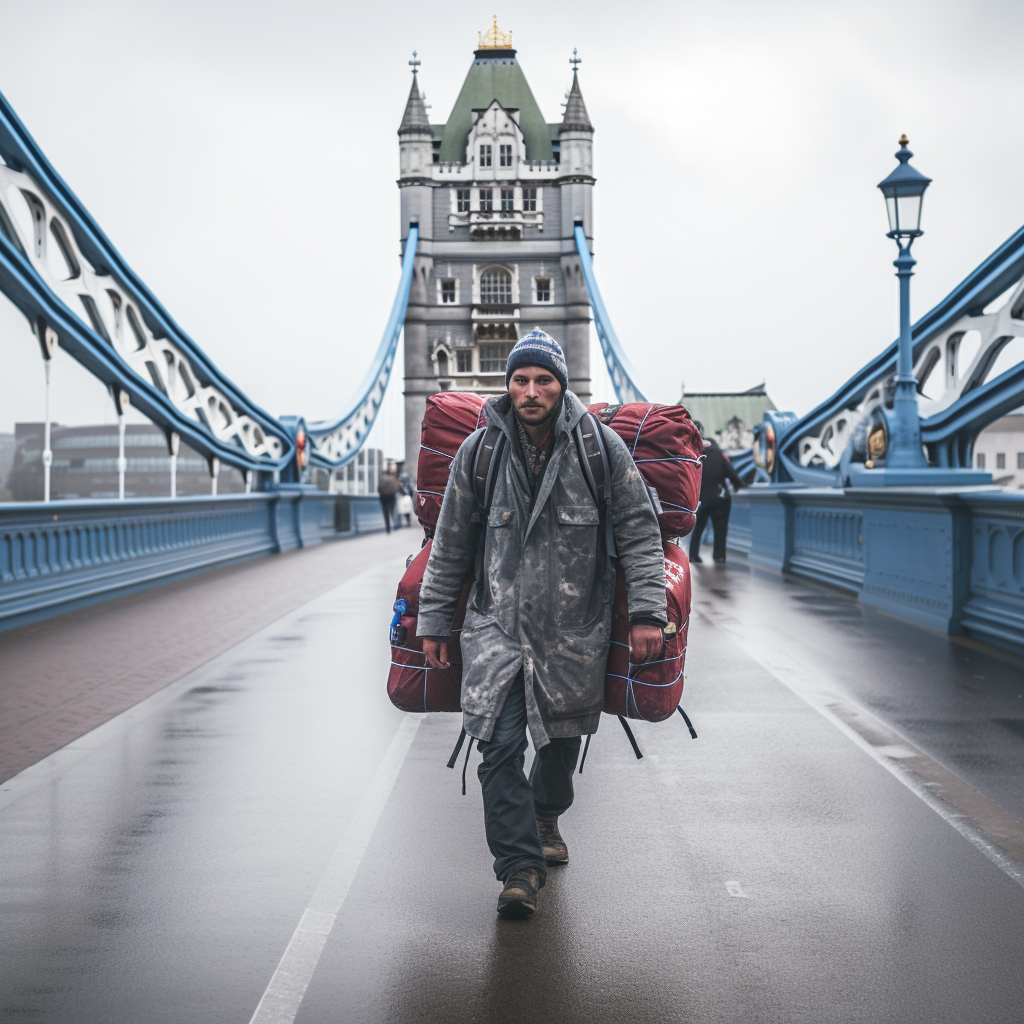Since 2022, there has been an unprecedented influx of Ukrainian refugees into the United Kingdom, triggered by the Russian attack on Ukraine. The concept of refugees has often been associated with images of desperation and destitution, and many Britons, with open hearts, have welcomed these newcomers into their homes, expecting these Ukrainians would view Britain as a promised land of opportunity and prosperity.
However, the reality that unfolded was not quite as many had envisioned. For many Ukrainian refugees, Britain was indeed a promised land. They happily enrolled their children in British schools, found jobs, and started settling into their new country. Yet there were also refugees who did not see Britain as their new home, but rather as a temporary shelter, a safe haven until they could return to the life they loved back home.
In recent months, I’ve increasingly heard from host families who are ‘disappointed’ with their Ukrainian refugees. As these host families opened their homes and hearts and extended their hospitality, they anticipated gratitude and perhaps even a willingness from the refugees to engage in any available work, be it cleaning or house help. At the very least, they expected Ukrainians to be willing to learn English or make an effort to integrate.

I’ve had several conversations with families that hosted Ukrainians, and they all had similar expectations which, as it turns out, were largely based on a misconstrued perception of the Ukrainians’ circumstances.
The truth is, many Ukrainians had led comfortable, fulfilling lives back home. They had careers, homes, friends, families – a life that they cherished and wished to reclaim. Many had apartments in big cities and dachas in nearby villages where they spent their weekends. In short, they had good lives. They didn’t leave Ukraine because they were seeking a better life elsewhere. They left because their homeland was no longer safe. They came to Britain not with hopes of permanently settling down, but with the fervent hope of returning home once peace prevailed.
Also, many Ukrainians who came to Britain were financially self-sufficient. Some of them continue working remotely, while others had savings from their successful businesses or other sources. Many British hosts were taken aback to find that these refugees were not poor or destitute, but often wealthy individuals who brought with them significant assets. The assumption that they would arrive penniless was shattered, as many Ukrainian refugees were indeed quite affluent, merely seeking a secure place to stay until they could safely return home.
That being said, it is essential to remember that the majority of Ukrainians who arrived in Britain still need significant help. Many people left everything behind in Ukraine and came here with nothing more than the clothes on their backs and a hope for safety. These individuals ‘fit’ the traditional narrative of how a refugee should behave in a host country – they are in dire need of assistance, willing to start from scratch, and eager to learn and integrate into the new community. Yet, unfortunately, such individuals often get overshadowed in the public eye. The narrative seems to focus more on those who do ‘not fit’ – the financially independent, those who have jobs and are in Britain merely waiting until they can safely return to a peaceful Ukraine. It is crucial to acknowledge the diversity among the refugee community, recognising that while some may be self-sufficient, many others continue to grapple with the harsh realities of displacement and depend on our compassion and support.

This revelation, while surprising, underscores a sobering reality of global conflict and displacement. Those with financial means have the luxury to escape the horrors of war and seek refuge elsewhere. Unfortunately, those who lack such resources often have no choice but to endure the hardship, struggling for survival in the war-torn land they call home. I remember hearing similar stories from those who escaped from Poland just before or during World War II.
In conclusion, the experiences of Ukrainian refugees in Britain serve as a reminder of the dangers of forming perceptions based on stereotypes. The wealth, aspiration, and resilience of these individuals challenge the narrative that refugees are uniformly poor, desperate, or view their host countries as a permanent escape. Rather, many are merely seeking temporary refuge, carrying with them the heartfelt desire to return to their homeland once peace is restored.
All images generated using Midjourney
